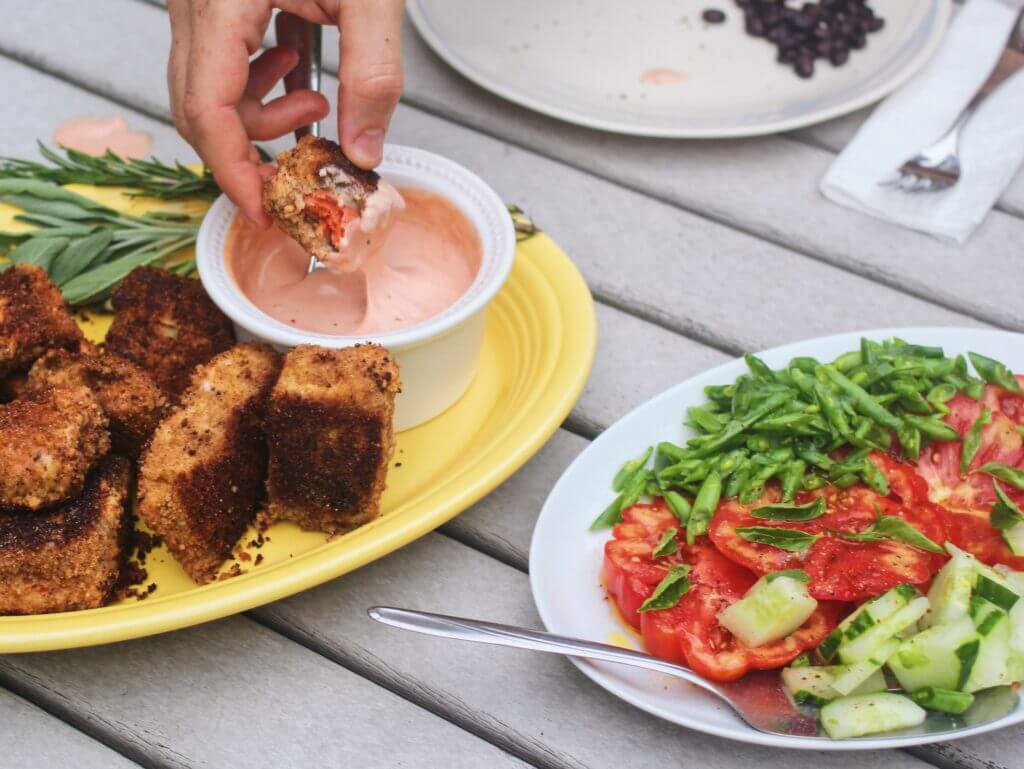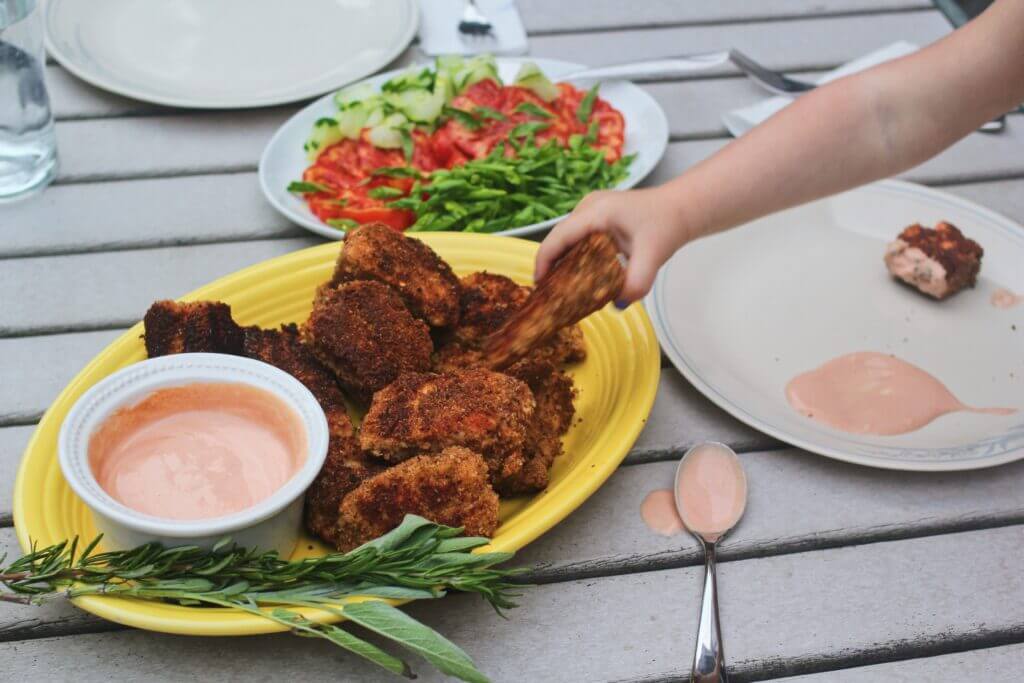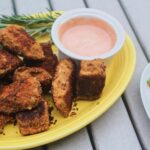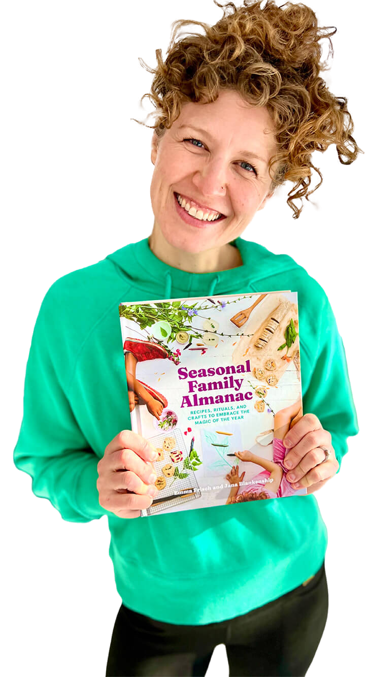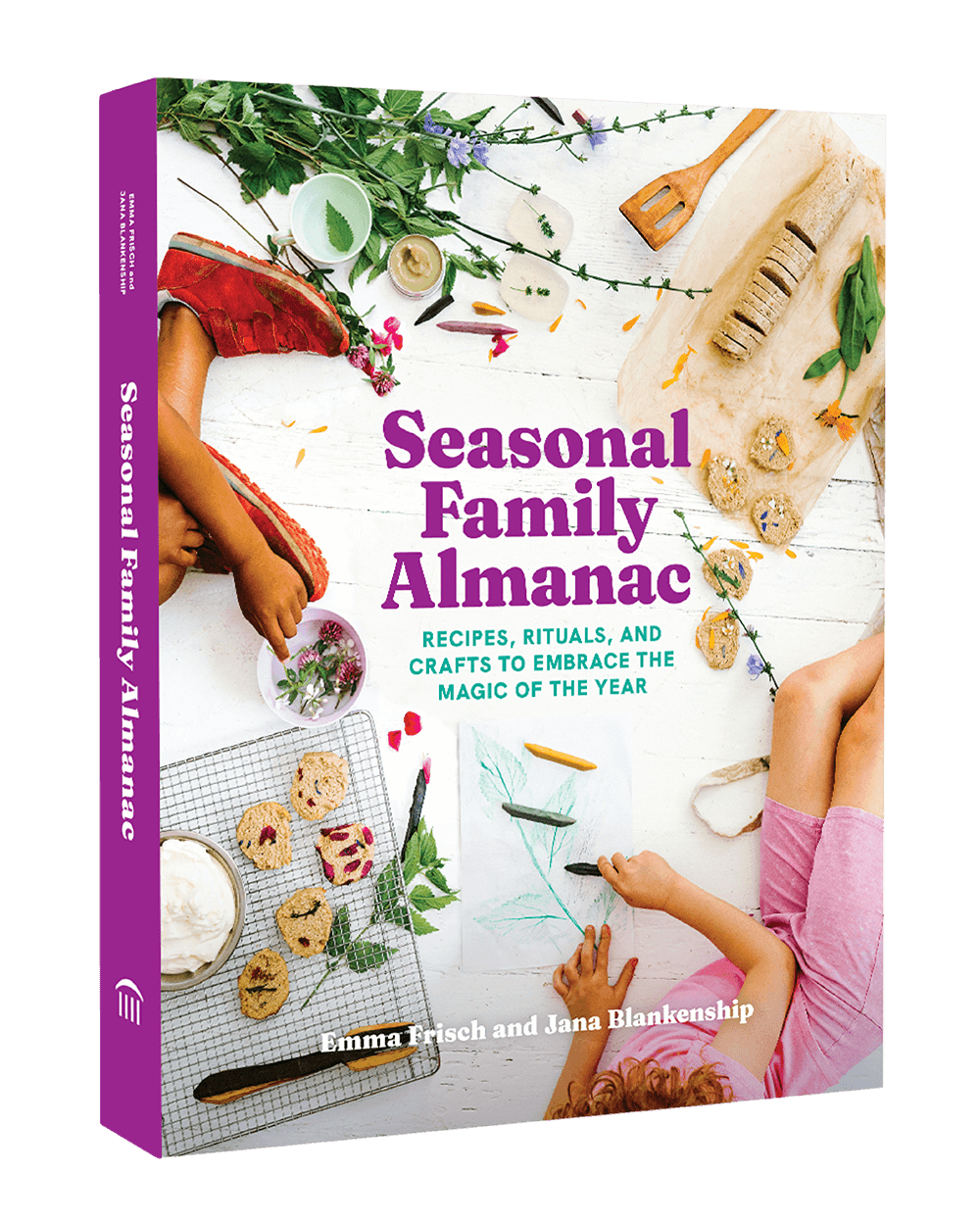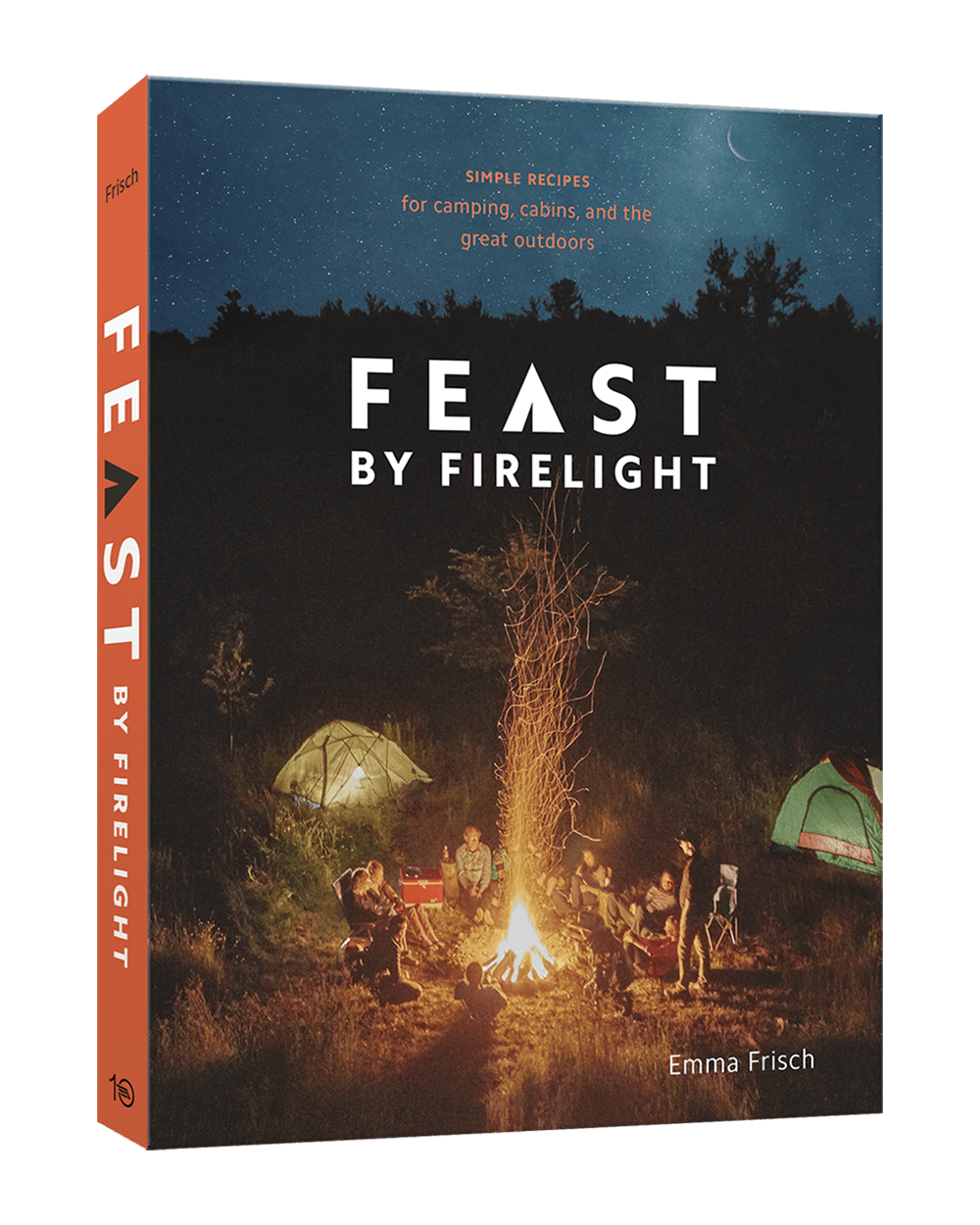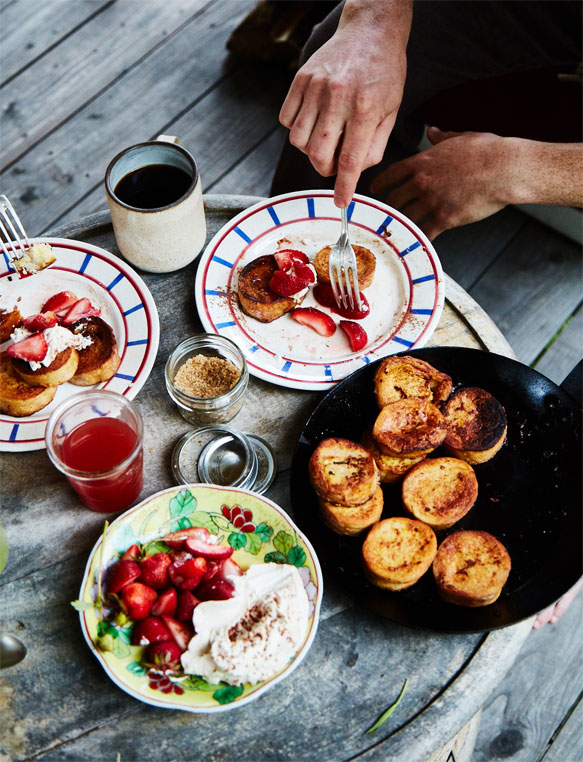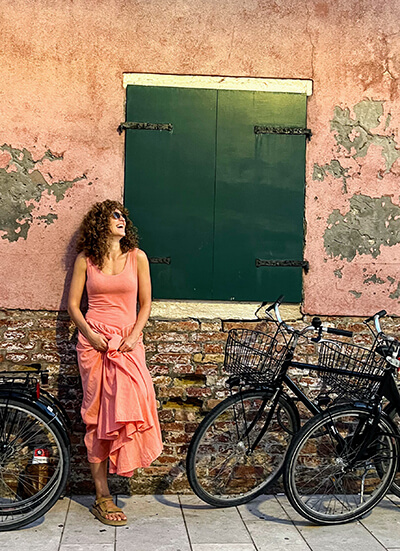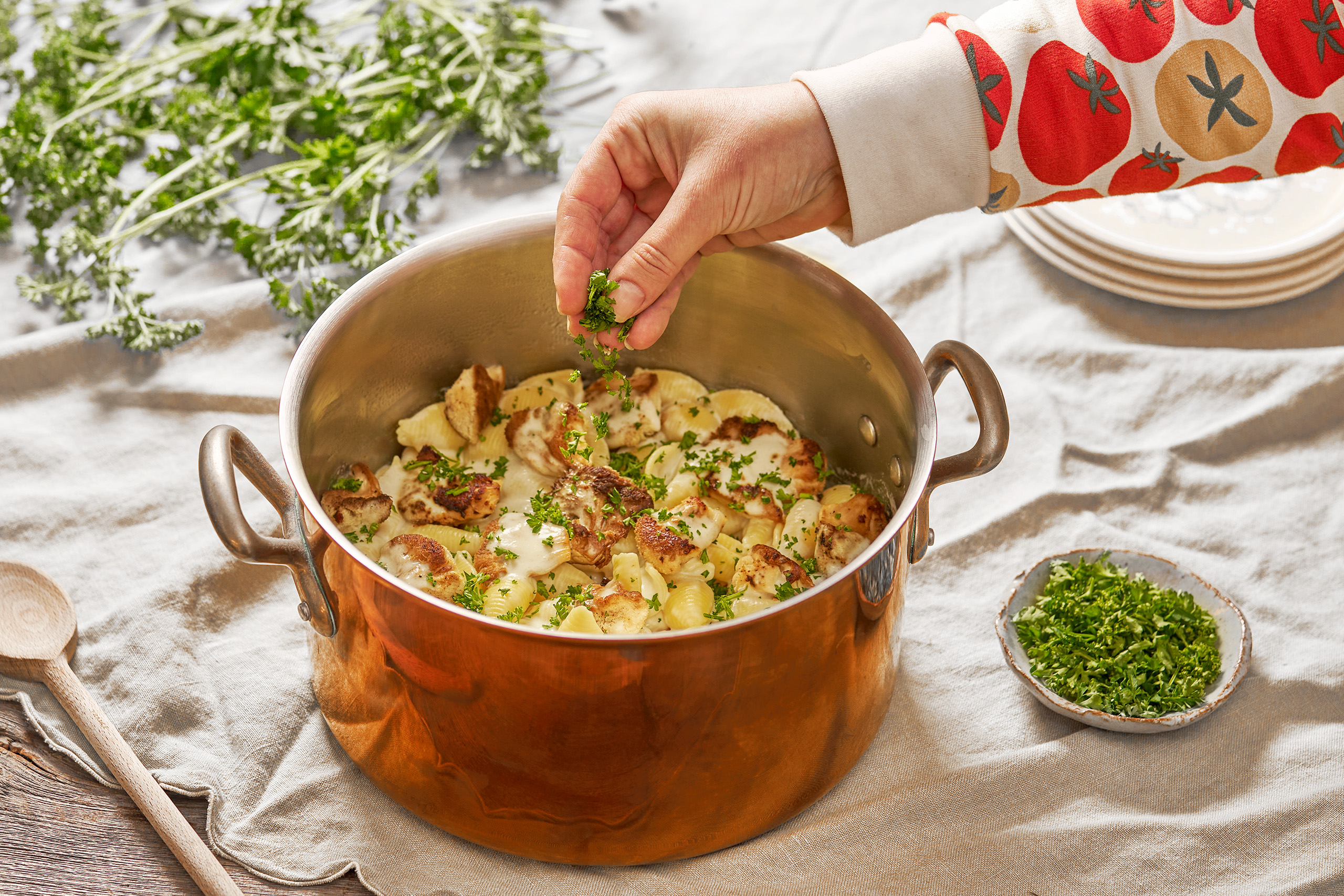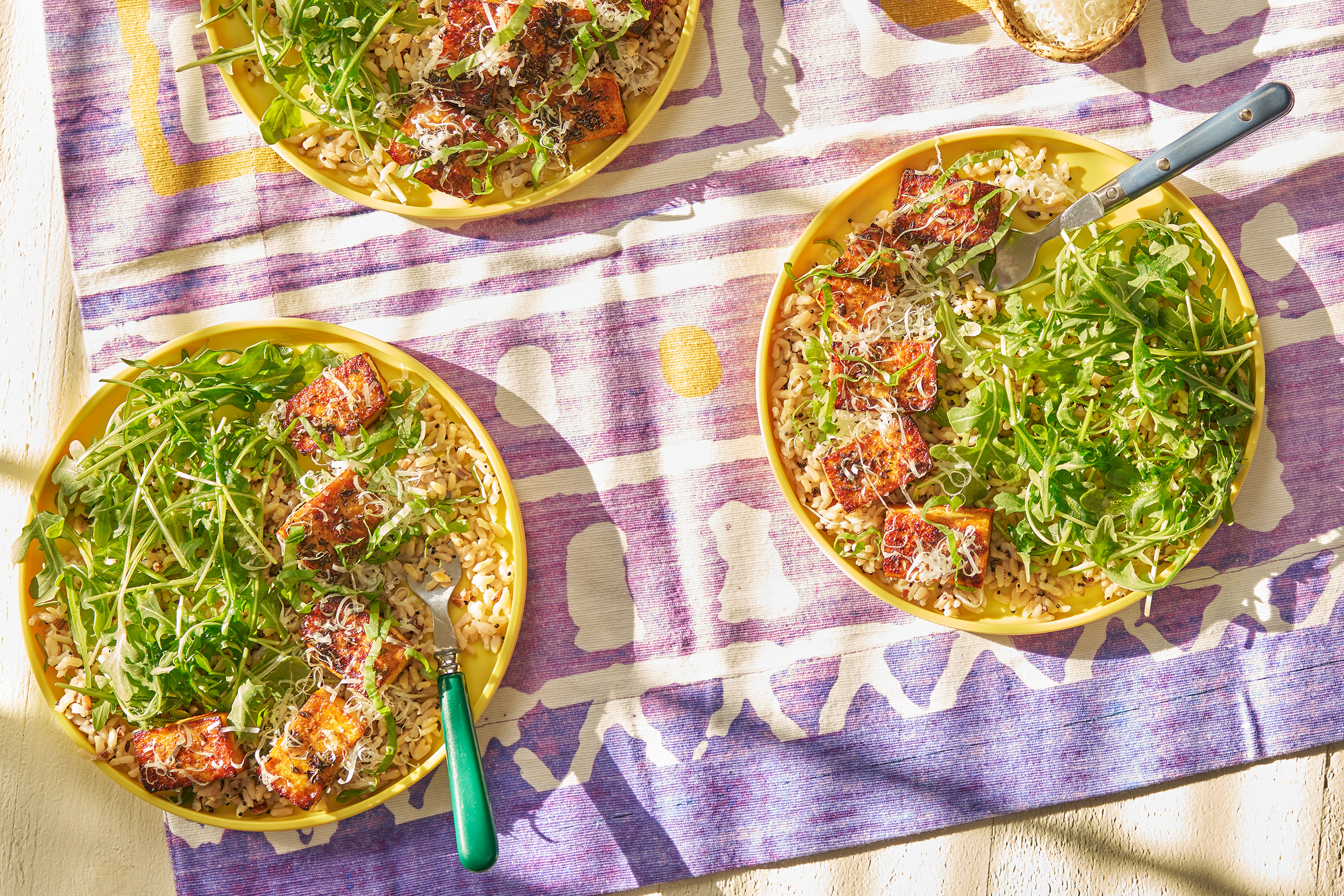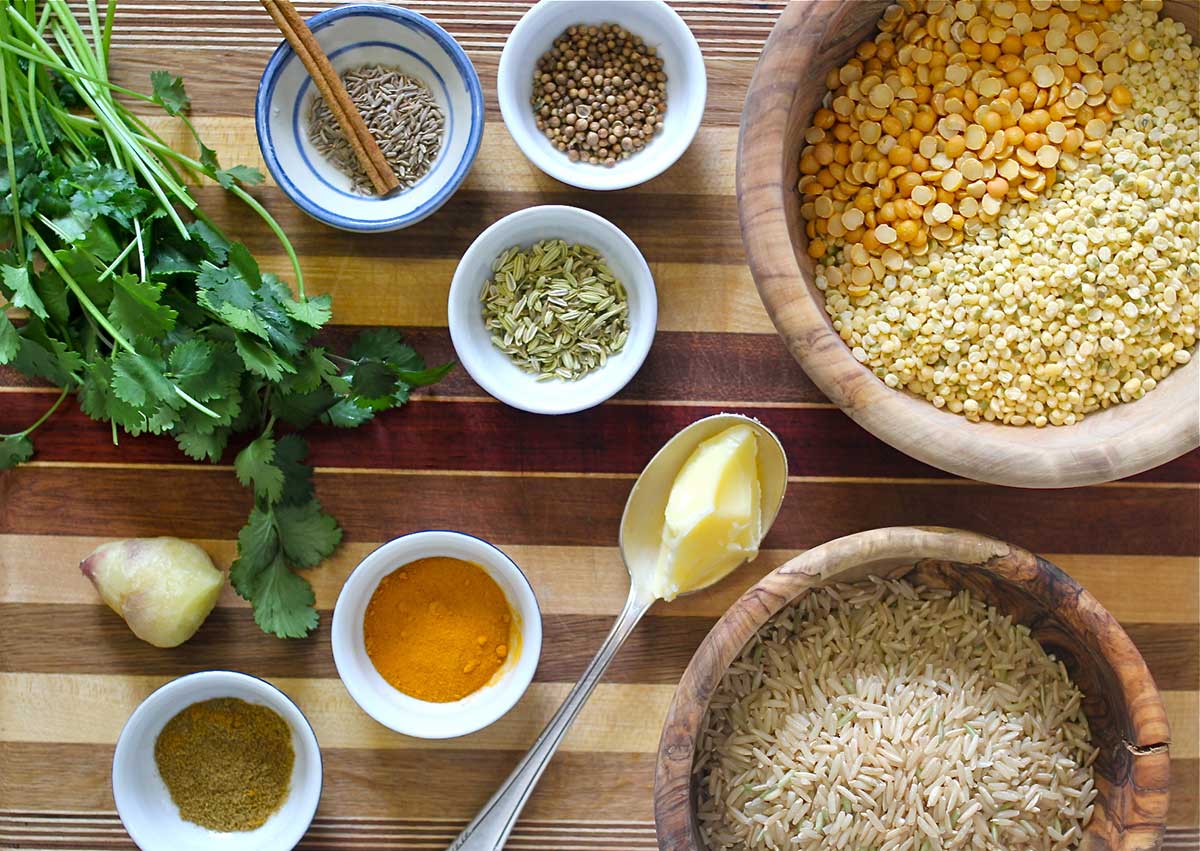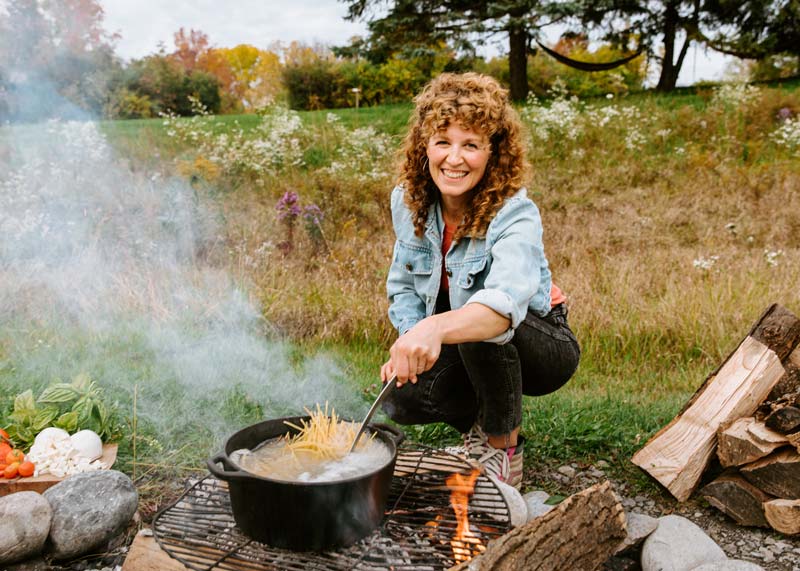Wild Sockeye Salmon Cutlets with Fancy Sauce
This post is sponsored by Wild For Salmon. All opinions expressed are my own and based on my personal experience.
Adapted from John Hoover’s recipe, these simple wild sockeye salmon cutlets are pan-fried and coated in breadcrumbs. Served with a 2-ingredient fancy sauce, this wild caught salmon recipe is a versatile meal you can plate with rice, pasta, vegetables, salads, and more. It’s no secret that I love using Wild Alaskan Sockeye Salmon. It’s flavorful, satisfying, and best of all, sustainable! Enter discount code EMMA15 at www.wildforsalmon.com, or click this link to begin your order and automatically apply the discount.Meet Anna Hoover
I’m blessed to know so many mothers who juggle child-rearing with creative pursuits and activism in pursuit of a more beautiful world. It makes me feel sane. And inspired. One of those women is Anna Hoover. Part Aleut (a Native Alaskan tribe), Anna’s upbringing was steeped in the indigenous wisdom of living harmoniously with the earth, and has in turn guided her path as a fisherwoman, artist and mother.“Cinematic storytelling that inspires our young people and reminds them how amazing their relatives are, imparts a sense of potentiality; it shows us ways these instructions on balanced and healthy ways of living can be celebrated and nurtured into the future.”Her home in Bristol Bay is the last thriving ecosystem for wild salmon on the planet. There are few places left on earth that have such an inextricable connection with the natural world in the way that salmon links Bristol Bay’s native people to the sea, rivers, forests, Spirit (God, Universe…), and each other.
CLICK TO ORDER WILD SEAFOOD AND GET 15% OFF
Until earlier this week, Anna fought tooth and nail alongside the United Tribes of Bristol Bay to block the approval of a large-scale open pit mine at the mouth of the Bristol Bay. The project would have irreversibly damaged the ecosystem as well as Anna and her community’s livelihood, their children’s heritage, her people’s way of life, and the future of our planet.“The natural world is under stress right now,” she said. “Humans need to change their relationship with consumerism, contentment, and the planet. This is what really fuels my fire.”On August 24, 2020, after two decades of grassroots resistance, the U.S. Army Corps of Engineers finally deemed the mine ineligible to receive a permit under the Clean Water Act. (I’m literally squealing in my seat!) So it is with cautious (and elated) celebration that I turn to my favorite topic with Anna: eating salmon. Eating wild salmon happens to be one of the best ways we can ensure their future. (There are other ways too, like making a donation to the United Tribes of Bristol Bay.)
Eat Wild Save Wild
Anna and I both love salmon eggs, otherwise called “roe” or “caviar.” However, I’ve only ever had it topped on cream cheese (or a tangy goat cheese) and toast. Anna shared her recipe for salmon eggs, otherwise known as “fish beans”. Boil them, strain them and lather them with soy sauce and butter. Her mother made them growing up, and now it’s one of her daughters favorite foods. She explained that soy sauce found its way into Alaskan pantries with the Chinese population that came to work in the wild seafood canneries. Anna remembers, “Tommy Wong taught everyone!” Chinese cooking is common in Egegik, where Anna spends her summers fishing. Another of Anna’s favorite recipes came from her father: pan-fried, breaded wild salmon. He would cut thin slices off the filet, starting at the tail, bread it in whole wheat flour, and pan fry it with salt and pepper. She said it’s a great recipe for folks who don’t like to eat fish, because, “Who doesn’t love anything fried. They’re like fish chips!” This sounded a lot like the Italian chicken cutlets I made with my mother growing up. I remember standing on a stool, pounding the chicken into thin pieces and dunking it in three dredging bowls: flour, beaten eggs, and breadcrumbs. I was IN. Skip to the recipe below, or gobble up these tips and hacks before diving into cooking. Thank you for being here. Please consider sharing this recipe and story with friends and family! With love and gratitude // EGET 15% OFF WILD ALASKAN SALMON TODAY
How to Defrost Frozen Seafood
Refrigerator: Place plastic-wrapped frozen seafood on a plate, baking sheet, or clean container to catch the liquid released as it thaws. (Wild For Salmon seals all frozen seafood in airtight plastic packaging, so leakage shouldn’t be an issue.) Place the container in the refrigerator on a low shelf and defrost overnight. Once completely thawed, discard any liquid that has collected in the packaging and use seafood within a day for freshness and safety. Cold Water: To defrost frozen seafood quickly, place in a leak-proof plastic bag (if it’s not already in one) and into a large bowl or container in the kitchen sink. Submerge the seafood in cold tap water, changing the water every thirty minutes until defrosted. Refrain from speeding up the process by defrosting in hot water. This encourages bacteria on the food to multiply, increasing risk of foodborne illness. Once completely thawed, use seafood within a day for freshness and safety.The Cutlet Method
Prepped cutlets are the perfect weeknight dinner option because they cook quickly. You can fry, grill, or bake cutlets, which are thin-sliced pieces of meat, fish, or vegetables if you’re vegetarian. I highly recommend making cutlets on the weekend and storing them in the freezer to save on cooking time during the busy week.- Slice the cutlets: Place your meat or fish on a clean, dry cutting board. Using a sharp knife, cut the meat in half crosswise, and again until you have 4 pieces. (See recipe for instructions on preparing a sockeye salmon fillet.)
- Flatten the cutlets: If making meat cutlets (chicken, beef, or pork), follow these instructions. Skip this step for seafood and vegetables. On the cutting board, sandwich your cutlets between two pieces of plastic wrap or parchment paper (you can also use a resealable plastic bag). Gently pound the cutlets flat with a meat tenderizer or rolling pin to flatten. Pound all over the meat to make it evenly thin.
- Coat the cutlets: Prepare your dredging station with three shallow, wide bowls. Fill one with flour, then next with beaten eggs, and the last with breadcrumbs. At the end of the line, have a large sheet pan or plate ready to place the breaded salmon. Remember FEBruary: flour first, then Eggs, and finally Breadcrumbs.
GET 15% OFF WILD ALASKAN SALMON TODAY
How to Make Bread Crumbs (Gluten-Free Too!)
First off, please choose a good, artisan-quality bread. It will make a world of difference for the final dish! I like to use sourdough. Fun fact. In my interview to get on Food Network Star Season 10, my kitchen hack was making homemade breadcrumbs. You can watch my stale-bread method in my Food Network Star casting video (skip to the bread at 2:20). In a nutshell, you take too hard, stale (or as I like to say “aged” bread) and grate it on a box grater or put it in a Ziplock bag and bash it with an empty wine bottle or can of beans. If you don’t have stale bread lying around and you’re in a pinch, pop a few slices in the toaster and crank it until it’s very crispy, but not burned! Pssst: you can use gluten-free bread too! Then, grind the bread in a high-powered food processor or follow the bashing method (above).Bread Crumb Substitutions and Alternatives
If you want to amp up your bread crumbs, mix them with crushed, dried herbs like rosemary, thyme and oregano. I also like to add lemon zest! You can substitute bread crumbs with gluten-free bread crumbs or almond meal. However, almond meal tends to burn more quickly, so pay close attention while pan-frying your sockeye salmon “cutlets.”What’s So Fancy About Fancy Sauce?
NOTHING. But it sounds fancy, doesn’t it? I don’t think I really discovered fancy sauce until last year, when my husband made it for dinner. Truly. My Italian mamma wasn’t a big fan of hot dogs or ketchup or anything American really. We had Italian mayonnaise growing up, which is nothing like what you buy in a jar from the store. (Frankly, I like her version better, and have a recipe for it in my cookbook.) But I have to say, there is something magical about ketchup and mayonnaise being mixed together and being able to tell your kids that you’re having “pink sauce” for dinner. (At least if they love pink, which mine do.) I also feel especially good about serving it to them when I have a batch of homemade ketchup to mix into the recipe.More Recipes with Wild Salmon from Bristol Bay
- Poached Sockeye Salmon Salad
- Bristol Bay Sockeye Salmon Salad
- Sockeye Salmon Gravlax
- Shiso-Cured Salmon
- Bristol Bay Sockeye Salmon Cakes
- Sesame Crusted Salmon
- Baked Coho Salmon with Peach Salsa
- Bristol Bay Salmon Spread
- Molasses-Ginger Salmon
GET 15% OFF WILD ALASKAN SALMON TODAY
PrintWild Alaskan Salmon Cutlets with Fancy Sauce
The brilliance of this dish is that it’s a nourishing, protein-packed finger food that you can adapt to your preferences and pantry. You could also use this method for other salmon and white fish offerings at Wild For Salmon. I especially love it with cod loins. You can swap out bread crumbs for gluten-free bread or almond meal, and also trade in the brown rice flour for all-purpose flour, whole wheat flour or white rice flour. This recipe is downright simple, but you can jazz it up by mixing in herbs and lemon zest with the bread crumbs! And of course, there’s the fancy sauce, so you’re already halfway there.
- Prep Time: 30 minutes
- Cook Time: 20 minutes
- Total Time: 50 minutes
- Yield: About 15 Cutlets 1x
Ingredients
- 1 Alaskan Sockeye Salmon whole fillet
- 1 cup brown rice flour
- 2 eggs, beaten
- 2 cups bread crumbs (see above post for How to Make Bread Crumbs)
- 1 teaspoon sea salt
- ¼ cup safflower oil (substitute with other light frying oil)
- ¼ cup mayonnaise
- ¼ cup ketchup
Instructions
- Defrost your salmon fillet in the fridge overnight. (If pinched for time, follow one of my tips in the post above to more quickly thaw your fillet).
- When the salmon is thawed, use a sharp knife to slice it into portions laterally, starting at the tail, about 2 inches wide. Then divide those portions in half. If your knife isn’t sharp enough, you may need kitchen shears to break through the tough skin.
- Prepare your dredging station: set out three shallow, wide bowls of ingredients in a line, beginning with the brown rice flour, then the beaten eggs, and finally the bread crumbs and sea salt mixed together. At the end of the line, have a large sheet pan or plate ready to place the prepared salmon.
- Using tongs, add a portion of salmon to the brown rice flour, turning to coat. Next, use the tongs to transfer the salmon to the egg bowl, turning to coat. Finally, coat the salmon with bread crumbs and transfer to the resting plate. As you move the salmon from each bowl, gently shake excess ingredients back into their bowls (mostly, with the egg!). You may need to scrape off the tongs now and then as the breading mixture builds up on them. Continue until all the salmon has been breaded.
- In a large frying pan, add ¼ inch of safflower oil and warm over medium-high heat. Test that the oil is hot enough to pan fry the salmon by adding a few bread crumbs to the pan.
- When the oil is ready, use the tongs to gently place about half of the salmon portions in the pan. Fry each side for 3-5 minutes until the salmon is firm when pressed down with the tongs, watching closely so as not to burn the breading. Transfer the salmon to a clean plate and allow to rest and slightly cool before serving. The salmon will continue to cook while resting. Add another splash of oil to the pan and turn the heat down slightly. Repeat with the remaining batch of salmon.
- While the salmon is resting, whip up your fancy sauce by whisking the ketchup and mayonnaise together in a serving dish. So fancy.
- Serve salmon warm with Fancy Sauce and fingers at the ready to dunk.
Did you make this recipe?
Share it with a friend. Snap a pic and post on Instagram.
Tag @emmafrisch and @wildforsalmon and hashtag it #wildforsalmon.


